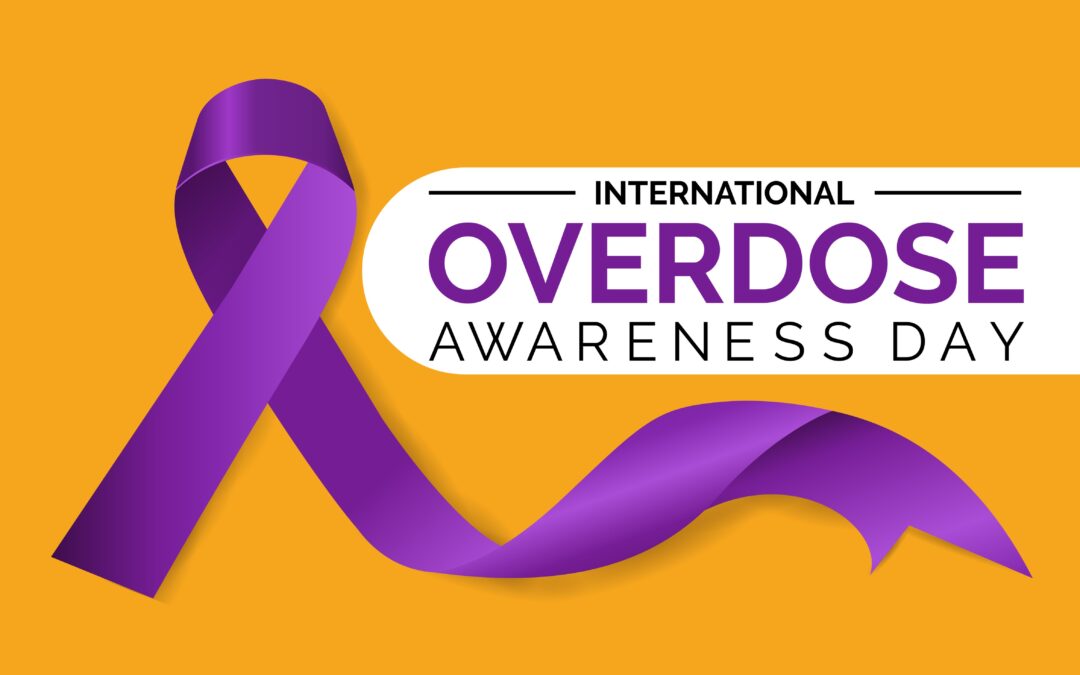International Overdose Awareness Day, observed annually on August 31st, is a global campaign dedicated to raising awareness about overdose, reducing stigma surrounding substance use, and commemorating those who have lost their lives to overdose. It’s a time to reflect on the devastating impact of overdose and the importance of prevention, intervention, and support for individuals affected by substance use disorders. In this blog post, we’ll explore International Overdose Awareness Day, including prevention tips, long-term effects of overdose, and ways to support overdose prevention efforts in communities around the world.
Understanding International Overdose Awareness Day:
International Overdose Awareness Day serves as a poignant reminder of the human toll of overdose and the urgent need for action to address the overdose crisis. Established in 2001 by the Salvation Army in Australia, the day has since grown into a global movement supported by organizations, advocates, policymakers, and individuals committed to preventing overdose deaths and promoting harm reduction strategies.
Prevention Tips for Overdose:
Preventing overdose requires a multifaceted approach that includes education, harm reduction, access to treatment, and support services. Here are some prevention tips to consider:
- Know the Signs of Overdose: Familiarize yourself with the signs and symptoms of overdose, including respiratory depression, unresponsiveness, pinpoint pupils, blue lips or fingertips, and loss of consciousness. Prompt recognition of overdose can save lives by enabling early intervention.
- Practice Safer Substance Use: If you choose to use drugs or medications, practice safer substance use strategies to reduce the risk of overdose. Avoid using alone, start with a small dose, test substances for potency and purity, and avoid mixing substances, especially alcohol and opioids.
- Carry Naloxone: Naloxone is a life-saving medication that can reverse opioid overdose when administered promptly. Consider carrying naloxone with you if you or someone you know is at risk of opioid overdose. Many communities offer naloxone distribution programs and training on how to administer the medication.
- Dispose of Unused Medications Safely: Dispose of unused or expired medications properly to prevent accidental ingestion or misuse by others. Follow local guidelines for medication disposal, such as participating in take-back programs or using drug disposal pouches.
- Seek Help for Substance Use Disorders: If you or someone you know is struggling with substance use, seek help and support from healthcare professionals, counselors, or addiction treatment programs. Treatment options may include counseling, medication-assisted treatment, support groups, and residential or outpatient programs.
Long-Term Effects of Overdose:
The long-term effects of overdose can vary depending on factors such as the type and amount of substance involved, the individual’s overall health, and the promptness of medical intervention. Some common long-term effects of overdose may include:
- Organ Damage: Overdoses can place significant stress on vital organs such as the heart, lungs, liver, and kidneys, leading to acute or chronic damage over time. Prolonged substance abuse and repeated overdoses can increase the risk of organ failure and irreversible complications.
- Brain Injury: Hypoxia, or lack of oxygen to the brain, is a common consequence of overdose and can result in brain injury or cognitive impairment. Individuals who survive overdoses may experience long-term deficits in memory, attention, and executive function.
- Mental Health Disorders: Experiencing an overdose can be traumatic and may contribute to the development of mental health disorders such as post-traumatic stress disorder (PTSD), depression, anxiety, and substance use disorders. These co-occurring disorders can complicate recovery and require comprehensive treatment approaches.
- Social and Legal Consequences: Overdoses can have far-reaching social and legal consequences, impacting relationships, employment, housing, and legal status. Individuals who overdose may face stigma, discrimination, and barriers to accessing support and resources.
Supporting Overdose Prevention Efforts:
Supporting overdose prevention efforts is critical for addressing the overdose crisis and saving lives in communities around the world. Here are some ways to get involved:
- Advocate for Policy Changes: Advocate for policies that support harm reduction strategies, expand access to naloxone and overdose prevention education, and promote evidence-based approaches to substance use treatment and recovery.
- Raise Awareness: Participate in International Overdose Awareness Day events and activities to raise awareness about overdose, reduce stigma, and promote overdose prevention resources and support services in your community.
- Support Harm Reduction Programs: Support local harm reduction programs that provide naloxone distribution, overdose prevention education, syringe exchange services, and access to treatment and support for individuals affected by substance use disorders.
- Share Resources and Information: Share information and resources about overdose prevention, naloxone administration, and substance use treatment and recovery options with your networks, friends, family members, and community organizations.
Conclusion:
International Overdose Awareness Day serves as a powerful reminder of the urgent need to address the overdose crisis and prevent unnecessary loss of life due to substance use. By raising awareness, advocating for policy changes, supporting harm reduction efforts, and promoting access to treatment and support services, we can work together to prevent overdose deaths and support individuals affected by substance use disorders on their journey to recovery and healing. Together, let’s honor the memory of those we have lost to overdose and commit to creating safer, healthier communities for all.

